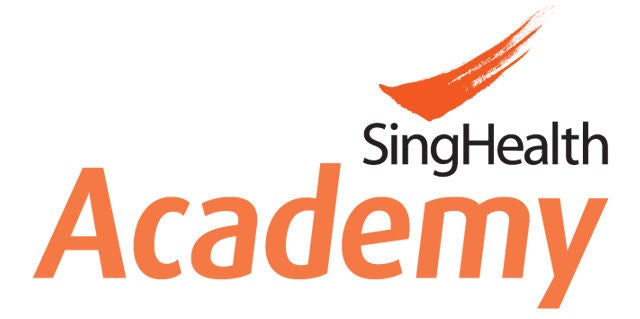SingHealth Academy will NEVER ask you to transfer money over a call. If in doubt, call the 24/7 ScamShield helpline at 1799, or visit the ScamShield website at www.scamshield.gov.sg.
Symposium 2: Evidence-based Herbal Medicine in Metabolic, Renal, Cardiac and Vascular Diseases
Symposium 2: Evidence-based Herbal Medicine in Metabolic, Renal, Cardiac and Vascular Diseases
Date: 6 July 2025, Sunday | Time: 1330 - 1510 | Venue: The NAK Auditorium, Academia
Co-Chairs: Prof Ng Han Seong (SGH), Dr (TCM) Goh Kia Seng (ACMS & SCHMI) & Dr (TCM) Zheng Huang Fang (STCMI)
TOPIC 1:
Role of Chinese Medicine in Pre-diabetes and Diabetic Kidney Disease
Speaker: Dr (TCM) Lim Weihan (STCMI)
Pre-diabetes and diabetic kidney disease (DKD) represent escalating global health challenges, underscoring the need for innovative therapeutic strategies. Traditional Chinese Medicine (TCM) offers a holistic, evidence-based approach targeting multifactorial pathways in these conditions. This presentation examines TCM’s mechanisms and its synergistic effects with conventional therapies to improve glycemic control, reduce albuminuria, and delay disease progression. Clinical evidence highlights these benefits with no serious adverse events reported in trials. By integrating TCM’s multi-target strategies with modern medicine, an integrative model could offer promising strategy to mitigate pre-diabetes advancement and preserve renal function in DKD.
TOPIC 2:
Is Drug-herb Interaction a Major Concern? – Example from using Rhubarb (大黄) in Chronic Kidney Disease
Speaker: TCMP Ong Si Yu (STCMI)
Traditional Chinese Medicine (TCM) has gained recognition for its potential in supporting Western medicine (WM) in the management of chronic conditions, particularly in chronic kidney disease (CKD). Rhubarb (大黄) is one such herb that has demonstrated promising therapeutic effects in CKD treatment, especially in reducing proteinuria, improving renal function, and slowing disease progression. However, as the integration of TCM herbs into Western medical practice grows, concerns regarding herb-drug interactions have emerged, potentially complicating treatment outcomes. This talk will examine whether drug-herb interactions are a significant concern, breaking down the interaction mechanisms by analyzing the pharmacokinetics of herbs and drugs, specifically through the ADME (Absorption, Distribution, Metabolism, and Excretion) model. Through a case study on Rhubarb in CKD, we will explore the potential risks and benefits of combining rhubarb with conventional Western treatments. While rhubarb can enhance the efficacy of standard treatments, the talk will also highlight safety concerns such as gastrointestinal side effects, the risk of hyperkalemia, and interactions with Western medications. The session will conclude with key recommendations for clinicians on how to optimize treatment outcomes with TCM herb use, ensuring that both therapeutic efficacy and patient safety are maximized. A focus will be placed on individualized treatment plans, regular monitoring, and patient-specific factors to minimize adverse effects and enhance the benefits of combined therapeutic approaches.
TOPIC 3:
Standardising Outcomes for TCM-based Intervention Clinical Studies in Ischemic Heart Disease and Chronic Heart Failure: Challenges and the Role of Developing a Core Outcome Set
Speaker: Dr (TCM) Chua Hui Zi
The integration of Traditional Chinese Medicine (TCM) into the management of ischemic heart disease (IHD) and chronic heart failure (CHF) offers a holistic approach to cardiovascular care. While emerging evidence highlights the effectiveness of TCM in improving cardiac function, reducing clinical symptoms, and enhancing quality of life for patients with IHD and CHF, the lack of standardised reporting of outcomes in these clinical trials presents significant challenges in evaluating the effectiveness of TCM-based interventions across clinical studies. This presentation aims to address the importance of developing a core outcome set (COS), an agreed standardised set of outcomes to be implemented in all TCM-based intervention studies for the same healthcare area, to ensure consistency, reproducibility, and evidence-based decision-making in clinical settings. This talk will also discuss the key challenges of outcome standardisation in TCM-related studies given the variations in TCM practices and cultural perceptions internationally, which include identifying critical outcomes to reflect the unique attributes of TCM. The emphasis of standardising outcomes in TCM research will enhance the methodological rigor of clinical studies, thereby improving patient care and fostering broader acceptance of TCM in the management of IHD and CHF.
TOPIC 4:
Chinese Medicine in the Management of Hypertension
Speaker: Dr & TCMP Wang Xiaohui (SGH)
Hypertension is a major global health concern and a key risk factor for the development of cardiovascular diseases worldwide. Chinese Medicine offers a holistic approach to the management of hypertension through individualised treatment based on syndrome differentiation. Commonly prescribed herbs including Tian Ma, Gou Teng, Dan Shen, Ge Gen etc. have shown to have antioxidative, vasodilatory as well as inhibitory effects on sympathetic and renin-angiotensin system in preclinical studies. Recent randomised controlled trials and meta-analyses have also demonstrated the effects of Chinese Medicine formulations in lowering blood pressure when compared to conventional treatments. While these studies suggest that integration of Chinese Medicine into current medical practices may offer a complementary strategy in hypertension management, further high-quality trials are needed to validate its long-term clinical efficacy, safety and its clinical application in a wider group of patients.
© 2025 SingHealth Group. All Rights Reserved.
















